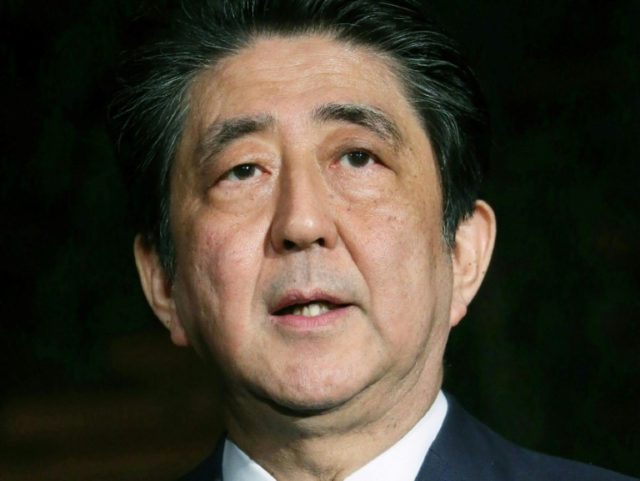During his visit to Jordan on Tuesday, Japanese Prime Minister Shinzo Abe declared that Jordan’s stability is “indispensable for regional stability” and pledged to “dramatically develop our bilateral ties” on security and trade issues.
Jordan could use an infusion of Japanese trade, as its economy has been hindered by the conflicts raging in neighboring Iraq and Syria. Abe was not exaggerating the problem when he worried that economic woes could threaten the political stability of the country. While they generally stop short of threatening the monarchy, Jordanians angered by huge new taxes on staple foods have demanded the resignation of government officials and the dissolution of parliament.
Financial support for Jordan from the Gulf Cooperation Council (GCC) was dramatically reduced when the GCC, grappling with the political crisis of the Qatar boycott and the financial pressure of plummeting oil prices, chose not to renew a five-year, $3.6 billion aid package in 2017. That left the United States as Jordan’s chief financial supporter, to the tune of about $1.25 billion per year, despite President Trump’s threat to cut off support to countries that do not support his decision to relocate the U.S. embassy in Israel to Jerusalem.
Jordan’s trade portfolio took another hit in March when it suspended its free trade agreement with Turkey amid complaints of Turkish protectionism, although some observers speculate the trade tiff is part of a complicated courtship between Ankara and Amman, fueled by mutual support for the Palestinians and resentment over Jerusalem. U.S. policymakers would surely prefer stronger ties between Jordan and Japan over Jordan drifting into the orbit of an increasingly hostile Islamist Turkey.
Japan has given Jordan significant financial assistance to deal with the million-plus refugees flowing across its border from Syria, an aid program Abe pledged to continue on Tuesday.
Japan also sponsors a trade program with Jordan, Israel, and the Palestinians called the “Corridor for Peace and Prosperity,” which is designed to promote mutual prosperity through joint projects, particularly projects that could promote a more stable economy for a prospective Palestinian state.
Abe’s delegation to Jordan included both senior officials and Japanese corporate leaders. Japanese Foreign Minister Taro Kono held a meeting with economic ministers from Jordan, Israel, and the Palestinian Authority on Sunday focusing on the Jericho Agro-Industrial Park in the West Bank, a decade-old project launched under the Corridor for Peace and Prosperity initiative that Japan would like to expand.
“It was very significant that ministers from the four parties met at a time when parties concerned face difficulties promoting dialogue,” Kono said with delicate optimism after the meeting.
Kono is also hoping to arrange a summit meeting in Tokyo between Israeli Prime Minister Benjamin Netanyahu, Palestinian Authority President Mahmoud Abbas, and the U.S. government as represented by President Trump’s son-in-law Jared Kushner. Netanyahu has indicated he will participate if the United States does.
Abe’s trip to the Middle East also included a trip to the United Arab Emirates on Sunday. The UAE is Japan’s primary trading partner in the region, handling a third of Japan’s Middle Eastern trade and providing almost a quarter of its crude oil.

COMMENTS
Please let us know if you're having issues with commenting.